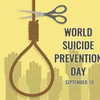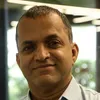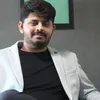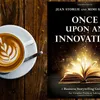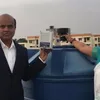From idea to implementation: tips from winners of the TiE Women Bangalore 2020 programme
From the ‘aha’ moment to fundraising, these founders share a wealth of insights for aspiring entrepreneurs.
The global entrepreneurship support network called The Indus Entrepreneurs was founded in Silicon Valley in 1992. There are now 61 TiE chapters in 14 countries, conducting a range of workshops, panels, pitch sessions, virtual events, and special programmes.
For example, TiE Young Entrepreneurs (TYE, for high school students) was launched in 2008 and 30 chapters ran this programme in 2020. TiE Women, with a special focus on women entrepreneurs was launched in 2019, and 26 chapters are running this programme in 2020, including TiE Bangalore.

TiE Women Bangalore recently wrapped up its 2020 programme of workshops, roundtables, mentoring, and pitch competition. A jury panel declared Seragen Biotherapeutics as the overall winner. OmiX Research & Diagnostics Laboratories was the first runner up, followed by PrimedQ and . Other startups in the final eight were , Findeed, , and e-Waste Social.
The programme included other participants like , Arcapsis Technosolutions. Avidia Labs, , , Ezetelly, , , , Reseda Lifesciences, SmallBagDelivery, , , and .
In Part I of our coverage on the programme, we share insights and tips from the winning founders. In Part II and Part III, we feature expert advice from the mentors, workshop leaders, roundtable speakers, and industry professionals who participated in the programme and its grand finale.
YourStory was part of the initial selection committee, along with Technologies, ITS, NetApp, Sattva Consulting, Pierian Singapore, Tasscom, Caspian Impact Investments, Biosciences, July Ventures, Scientific Games India, Zamstars Management Services, AxLerateNow, Finagua Technologies, Multiversal, HUM Consulting Services, and Evergreen Valley Law Group.
See also our earlier profiles of resilience activities by TiE Global and the city chapters of Bangalore, Mumbai, New Delhi-NCR, Silicon Valley, New York, Seattle, Melbourne, Pune, Chennai, Kerala, Hyderabad, Ahmedabad, and Kolkata.

Problem discovery and market opportunity
Based on a combination of domain knowledge, insights, trigger points, and passions, the founders explain how they spotted problems and opportunities in their fields.
“A few years, back a colleague of mine called up about a hospital that wanted to sell all its equipment just two years after starting, as they couldn’t get enough business. They eventually had to sell the whole lot, for less than a third of the cost another two years later,” explains Shanthi Mathur, Co-founder and CEO, India, in a chat with YourStory.
Inspired by the ecommerce models of OLX, , Amazon and , she realised there was an opportunity in creating a platform for used or refurbished medical equipment. Her B2B emarketplace connects healthcare providers, medical equipment sellers, and service providers. “We provide a one-stop-destination for everything related to medical equipment,” she says.
“Our target segment is doctor-owned small and medium hospitals with typical bed strength of 10-100 beds. A huge pain point of this segment is lack of organised mechanisms to find and acquire affordable medical equipment in a trustworthy manner, and to find reliable service support,” she explains.
Shanthi has BE and MBA (XLRI) degrees, and close to 25 years’ experience in the healthcare management and consulting space. She has worked with IBM India, Max Healthcare, Healthcare, ICICI Bank and Asian Heart Institute. Co-founder Dr Sakshi Khandelwal has been in the hospital management, consulting, and health analytics space for the last 10 years.
“Witnessing the grief of poor fertility care undergone by my friend led me to delve deeper in this category to find a solution,” explains Vasanthi Palanivel, Chief Scientific Officer, . It helps obstetricians, gynecologists and andrologists treat male and female infertility conditions using regenerative medicines.
The treatment helps couples build a family. “Working with national and regional fertility chains, we have helped thousands of couples with our patented products,” she proudly says.
Co-founded by Iram Maimuna, e-Waste Social is an e-waste management early-stage startup. It provides a B2B platform for aggregation of e-waste, responsible e-waste management, carbon footprint reduction certification, and fulfilment of EPR and CSR through the value chain.
“The aha moment was seeing the sheer magnitude of the problem. In India, 40 million tons of e-waste are generated per annum, growing at the rate of 30 percent each year,” Iram explains. Only five percent of this waste is recycled in the formal sector, and the startup is targeting the rest of this market.
“We launched our startup with the mission to democratise design,” explains Sona J, Co-founder and Chief Design Office of HelloSivi. Its graphic design product converts text into visual content instantly, generating designs that can be used for marketing, banners, newsletters, and more.
Sona has 10 years of experience with MNCs and small firms, and a popular presence on a design portal. She also designs educational games for kids. Her experience convinced her of the importance of graphic design in marketing strategies.
“But small businesses are not able to afford quality designs. In contrast, the design teams of large enterprises are not able to match the content velocity needed,” Sona says. This insight led her to launch HelloSivi, which is now in private beta.

“There was a day three years ago, when I was lying in a hospital bed, at the brink of giving up. I had lost five years of my work along with my voice in a fire accident which ultimately put my existence to the test,” recalls Dr Ramya S Moorthy, Founder and Director of Nimaya Robotics.
“But I received a phone call that changed everything. A special educator of a child whom I had worked with in the past called to delightfully inform me that the child who had almost no psychomotor skills when I started training was able to carry out and remember everything he had learnt during the training, even a year later. This call helped me to get up, dust off, get back on the saddle, and ride all the way to Nimaya,” she explains.
Nimaya Robotics develops mechatronics and robotic devices to enhance psychomotor skills of children with autism and other disabilities. Six different devices addressing more than 30 psychomotor skills have been developed so far, she says. Dr Ramya has a PhD in robotics from SASTRA University, Thanjavur. She is an INSPIRE Fellow and IIS Fellow 2018.
The ergonomic products are based on an exclusively developed training methodology to accelerate the rate of learning. Ramya cites CDC data that shows that one in 54 people are diagnosed with Autism Spectrum Disorder, and 93 million children around the world have disabilities.
“Over the last two years, there have been plenty of ouch moments followed by quick aha ones at various stages of our journey. The earliest ouchie was to notice the simple fact that children with vision loss don’t have access to images,” recalls Saloni Mehta, CEO and Chief Product Officer of Tactopus.
“The domino effect of that tumbles into the lack of access to learning science and math, to dropping out of school, not getting access to employment opportunities, and eventually leading forever-dependent lives,” she laments.
This quest to enable access to images spurred Saloni to develop a multisensory learning system that playfully brings together touch, sight, and audio to daily learning aids. “And this is where we had our aha moment. We were enabling multisensory learning and play, using the power of digital, in the child’s physical realm without exposure to screen time,” Saloni says.
“We realised this was not only great for young kids with blindness, but for every child, irrespective of disability,” she adds. “The use of multiple senses to reinforce learning was especially path-breaking for children who are traditionally slow learners and have intellectual disabilities. So we expanded our scope to more learners, across disabilities, and even to those without,” she explains.
Saloni has a BTech and MDes from IIT-Bombay, and was earlier at Flipkart and Samsung in business and design roles. She has a keen interest in innovation for social impact, especially inclusive education and equality.
“The ouch moment was over the several years when I was leading Medical Diagnostics R&D at GE Healthcare in India. Every day that I travelled to work, the contrast of my work and what we could develop to address healthcare needs was in stark contrast with the state of healthcare in the less affluent areas of the city,” recalls Sudeshna Adak, Founder and CEO, OmiX.
This would involve rethinking technology cost, trained human resources, and infrastructure. “The aha moment was a dawning realisation that all it needed was commitment and passion to take this vision forward,” she adds.
Her startup helps tackle the rise of infections and antibiotic resistance via access to infection diagnostics and the detection of antibiotic resistance to the last mile. “In the last five years, OmiX has developed a platform for molecular diagnostics that can be deployed in any setting, with minimally trained manpower,” Sudeshna proudly says.
It is based on isothermal amplification, with easy-to-use kits, IoT-enabled detection devices, and machine learning for diagnostic interpretation. OmiX has been supported by several grants and awards, including BIG from BIRAC, Elevate and Grand Challenges grant from Gates Foundation. It is seed funded by Menterra Social Impact Fund and Artha Lesing.
Sudeshna holds a PhD in Statistics from Stanford and started her career working as a faculty at Harvard School of Public Health. Her 20 years of experience includes stints at IBM and GE.
“My first eye-opening moment came during my interactions with Flipkart customers. A simple Rs 5,000 line payable at the end of the month (‘Buy Now, Pay Later’) was serving an important credit need for a majority of our customers,” recalls Srividhya Ramarathnam, Co-founder at Findeed.
This led her to dig deeper into the credit needs of low-mid income groups, and understand how consumers in this space support each other. She launched Findeed to enable financial access to millions of working class Indians, leveraging the power of data and technology.
Consumers who earn between Rs 10,000- 30,000 per month constitute 60 percent of Indian households, Srividhya explains. These consumers remain underserved by formal credit channels and players. Findeed has developed a proprietary ‘social graph’ and ‘social equity score’ to promote positive group behaviour and loyalty effects.
Srividhya has 20 years of experience in product management and financial services. She was earlier at Flipkart, txtWeb, Capital One and Deloitte Consulting. Findeed and its partners have begun disbursing personal and school fee loans, and aim to reach 20,000 borrowers this year.
Traction
The founders also shared a range of milestones in their journeys. “We launched to market in March 2019. In the last year, we have impacted over a thousand children across 11 states in India and five countries, using our products in five different languages,” Saloni Mehta of Tactopus proudly says.
Customers include teachers, parents, special and inclusive schools, and rehabilitation centres. “We have also received government support via the Startup Week in Maharashtra, and Elevate programme in Karnataka,” she adds.
“We have done business with more than 200 hospitals across six states and more than 50 locations in South India over the last three years. Now we have potential customers reaching out to us from all over the country,” says Shanthi Mathur of Primedeq.
Nimaya Robotics has trained more than 65 children as part of the pilot and pre-sales. “Due to COVID-19, we are on an R&D break. However, we can’t wait to start the training in NIEPMD, a central government organisation, with whom we already have an MoU,” says founder Ramya Moorthy. She is also in final talks with the Indian Air Force and five more special schools in Chennai.
OmiX started marketing its services for precision molecular diagnostics for critical infections in December 2019. Before the pandemic hit, it acquired seven hospitals in Bangalore as its customer and had a strong pipeline.
“During this time, the most memorable of cases was a liver transplant case who had a drug resistant infection, which we identified as a pre-existing lung infection. It could be treated with combination antibiotics,” explains Sudeshna Adak of OmiX.
e-Waste Social has tied up with a range of partners: apartment app ADDA, MSME, and FICCI for their EPR and CSR requirements. “We are on track to complete three major consultancy projects and tendering our first proposal to the Govt of Kerala,” Iram Maimuna explains.
“We began our journey with a pilot with two employers in January 2020. We paused due to COVID-19, and resumed operation in July,” says Srividhya Ramarathnam of Findeed. They have received over 200 applications, and given loans to 100 customers with an average ticket size of Rs 30,000.
“We have on-boarded 15 employers with an employee base of more than 3,000,” she adds. Findeed was recognised by the Karnataka Startup Cell and was one of the winners of the Elevate program this year.
“We are profitable and have grown 100 percent year-on-year. We have treated over 2,000 couples and work with 50 hospitals,” says Vasanthi Palanivel of Seragen.
TiE Women programme benefits
The winners also shared their experiences with the TiE Women programme. “The mentorship, the continued guidance and support, and the network are extremely valuable during and after the programme,” says Sona of HelloSivi.
“The entire TiE team were great critics, mentors, and teachers. It was an enlightening journey that helped me pivot and get more market perspective,” adds Iram of e-Waste Social. It helped her build confidence, strengthen networks, and grow the core business.
“The TiE Women programme gave us access to potential investors, and a better understanding of the challenges other startups are facing and learning how they solve them,” says Shanthi of Primedeq. Introduction to concepts like design thinking, growth marketing, agile innovation, and problem solving also helped.
“The TiE Women programme helped with access to the broader TiE community and mentors. Individualised attention and feedback with mock pitching was also useful,” says Saloni Mehta of Tactopus. She also benefited from the training by industry experts.
“The experience of pitching in front of such an intellectual crowd was definitely new and helpful. We got the opportunity to network with a lot of aspiring, amazing women entrepreneurs and got to know of many different areas of work and problem solving,” explains Ramya of Nimaya Robotics.
“The mentoring sessions were particularly useful as we went through our pivot to COVID-19 detection products when the pandemic struck,” says Sudeshna of OmiX. The TiE forum helped refine the business plan and pitch, with feedback from people who were successful entrepreneurs.
“Last, but not the least was what I learnt from my fellow competitors – many great ideas, many great business plans, and most of all the commitment and passion,” she adds.
Srividhya of Findeed says she benefited by connecting with fellow entrepreneurs who are on a similar journey. “It was inspiring to see their ideas, interact with them, and understand their inspiration and challenges,” she explains.
“We also made valuable connects with the experts,” she says. She benefited from refining her story as well. She jokes: “Now I can tell you about Findeed in two minutes, six minutes, 15 minutes - you name it!"

Coronavirus effect
The COVID-19 pandemic has upset plans of many founders, while also opening up new avenues. “As we are in waste management, the pandemic has affected us. Some do not consider e-waste management a necessity or priority at the moment,” Iram of e-Waste Social explains. However, there are companies looking at e-waste management in a sustainable way, and this will be a growing trend in the long run.
“Many hospitals are converting their facilities for COVID-19 treatment. So there are opportunities we have seen in the ICU and critical care areas,” observes Shanthi of Primedeq. Requirements for ventilator repair and maintenance services, as well as spare parts have increased.
“Several small and medium hospitals run by senior doctors have closed down. We are seeing good equipment coming up for sale. That is an opportunity for us and others who are looking to invest for future,” she adds.
“All the special schools and therapy centres are shut down due to the pandemic. Given the fact that we reached the market in February 2020, all the schools that were ready to sign up are not functioning yet,” laments Ramya of Nimaya Robotics.
The supply chain is disrupted and has stalled the manufacturing timeline. Fortunately, the systems can be adapted to conform to less-contact protocols. “Keeping the current scenario in mind, we are in the process of developing reinforcement systems for children which can be used at home,” she adds.
The pandemic shut down the revenue source of Omix, which had to let go of several employees. “We sought funding for COVID-related grants, of which we won several. That has given us a significant boost,” says Sudeshna of OmiX. The startup also pivoted from services to product orientation, and accelerated the process of making its vision a reality.
“In 2020, COVID-19 came first with an ouch and then an aha moment. Why limit our scope to only learning aids? Parents from our existing community were struggling to find and reach specialists,” recalls Saloni of Tactopus.
This led to Tactopus’ Community Connect project. “We now host the end-to-end teacher-learner experience for the unique needs of special children,” she adds.
“We initially brushed off the pandemic as something that was short-term. And so, in response to the lockdown and closure of schools, we hosted a virtual inclusive summer camp,” she explains.
Soon enough, the realisation struck that the pandemic was here to stay, interrupting manufacturing and production. “We took it in stride. We continued to sell products we had in stock while focusing on research-based requirements from the community,” Saloni says.
This led the development of a platform to connect families of children with disabilities to educators and therapists online. “This helps the community stay tethered, irrespective of lockdowns and geographical restrictions,” she proudly says.
Consumers are spending more time online. “Hence, businesses are in need of elevating their digital marketing strategy and creating timely content,” observes Sona of HelloSivi. With marketing and design teams scattered across different locations, the pandemic has drastically increased the need for instant designs.
“The pandemic definitely led to a pause in business operations since anchors to reach our borrowers, such as employers and schools were under lockdown,” laments Srividhya of Findeed. But they could strengthen the platform and incorporate learnings from the pilot.
“The pandemic gave us an opportunity to research and create a product for COVID-19. We have filed for clinical trial and hope to be launching it soon,” says Vasanthi of Seragen.

Founder tips
The winning teams offer tips and words of advice for other aspiring entrepreneurs as well. “Having a purpose and being consistent helps me grow every day. And it takes time; it's all about persevering with positivity and patience,” advises Sona of HelloSivi.
“Always think ahead, make long term visions and short term goals. This helps you visualise right through the journey,” observes Ramya of Nimaya Robotics. It is important to have co-founders with shared vision.
“Normally you get two types of founders: those who share your vision and what you do, and those who want to join you for the valuation you are likely to get. Avoid the second one,” she urges.
“As women entrepreneurs, never let anyone belittle you or make you think any less of yourself. You have every right to be treated as equal,” Ramya affirms.
“Perseverance, USP, and mentors are a make or break for any business. No amount of money can get you this, so look out for great mentors who can share experience and market knowledge,” suggests Iram of e-Waste Social.
“Provide for at least 50-100 percent more funds than your estimate to begin with. You are going to need them,” recommends Shanthi of Primedeq.
“Entrepreneurship is a journey in learning new things all along. You may start with something you know and are passionate about, but be ready to keep learning new things to succeed,” she adds.
It is important to stay away from vanity metrics. “The true test of any product or service is that someone is willing to pay for it. Stay focused on acquiring customers who pay 100 percent for your offering from Day 1,” Shanthi emphasises. That is not only financially prudent but also helpful in filling any gaps or fixing any issues with the offering, since a paying customer will be demanding.
“It must be a passion for you to stay the course. At the same time, be ready to flex, don't be married to your idea,” advises Sudeshna of OmiX. The team should also have a say and contribute ideas.
“I am at an early stage in the journey. In terms of advice, I can only draw on my own experience in terms of my biggest challenge. That was to trust myself and let go of my comfort zone,” says Srividhya of Findeed.
“Be passionate, positive and giving! The world is your oyster,” says Vasanthi of Seragen.
“I have loads of tips,” enthuses Saloni of Tactopus. “Don’t be afraid, challenge yourself. Pause to ponder over the big questions, and do things with intent. Take action, you can make magic happen,” she urges.
“Ask. Ask. Ask. Invest in your team, and schedule time for yourself,” Saloni signs off.

About TiE Women
TiE Women is a global programme that was designed by TiE Global in partnership with EmpoWer, an initiative of Zone Startups. The programme’s mission is to empower, embrace, and encourage women entrepreneurs from different walks of life.
It supports early to late-stage startups with immersive masterclasses and mentorship to help them scale their offerings. Winners from TiE city chapters will participate in the TiE Women Global finale in Dubai in January 2021, and compete for a $100,000 cash prize. Three runners-up will be eligible for a two-day bootcamp conducted by EmpoWer.
The seven-week programme features six sessions of 2.5 hours each, conducted by industry leaders. Each entrepreneur is entitled to four hours of one-on-one mentoring each week, with a mentor of their choice from the TiE Charter member community.
At the end of the programme, each team is assessed on their progress by the TiE team, and report is prepared to help ensure subsequent growth. The entrepreneurs also get connects to relevant enterprise leaders (through TiE Bridge), investors (via TiE Women Investor Connect), and successful women entrepreneurs and investors (Expert Roundtables).
Edited by Teja Lele



![[The Turning Point] How these entrepreneurs took lessons from their earlier startup to start Branch Metrics](https://images.yourstory.com/cs/2/730b50702d6c11e9aa979329348d4c3e/Branch-1588941553614.png?fm=png&auto=format&h=100&w=100&crop=entropy&fit=crop)
![[The Turning Point] How a personal pain point influenced the founding of edtech startup Springboard](https://images.yourstory.com/cs/2/79900dd0d91311e8a16045a90309d734/turning-point1-1599224818959.png?fm=png&auto=format&h=100&w=100&crop=entropy&fit=crop)
